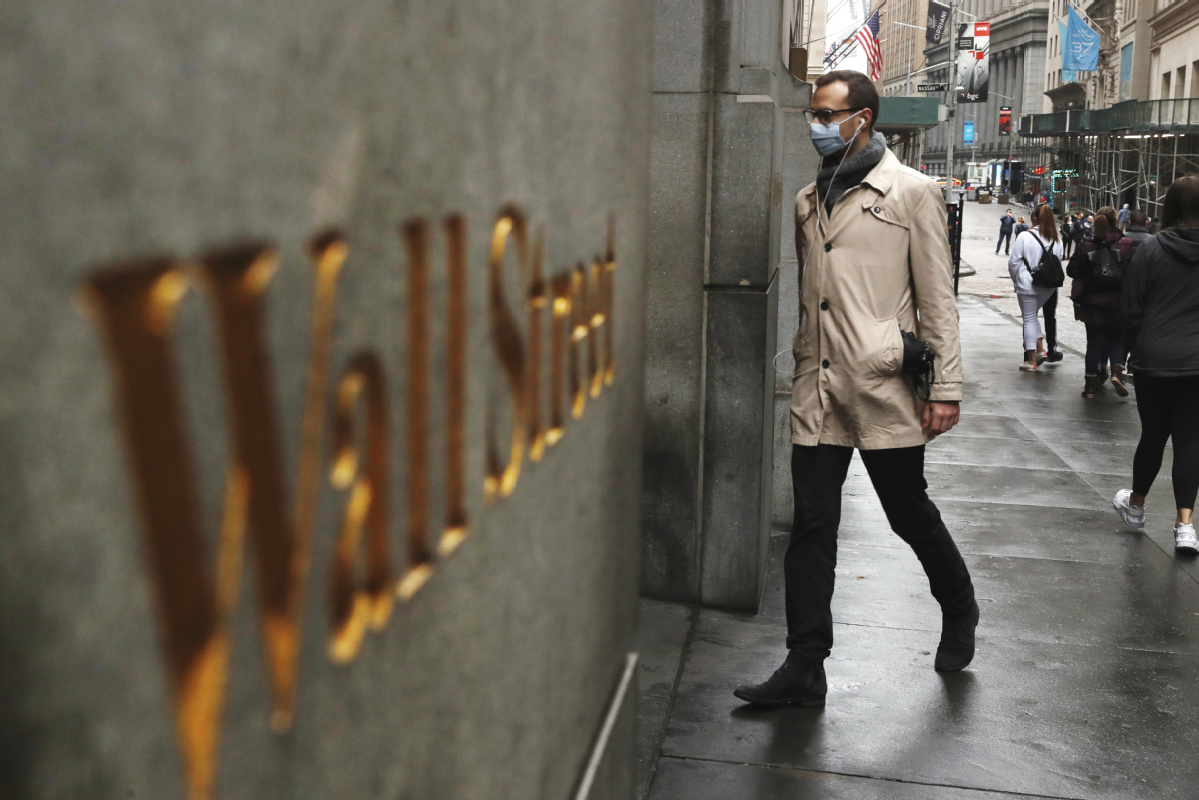Wall Street has mixed reaction to Trump's open-up idea
By Scott Reeves in New York | chinadaily.com.cn | Updated: 2020-03-26 08:16

US President Donald Trump's stated desire to have the country "opened up" by April 12 has sparked a mixture of criticism and some support from Wall Street.
Critics see the proposal as premature, unwise and dangerous in view of the growing coronavirus outbreak. Some believe the action also could damage Trump's re-election prospects in November.
"Trump needs to resist the urge to listen to economists until we have defeated the virus," Republican donor Dan Eberhart told The Washington Post. "If Trump tries to restart the economy too soon, and the pandemic continues to spread, that will be his legacy and it will be a legacy of failure. By all means, wait, Mr. President."
On Wednesday, investor Bill Ackman urged Trump and corporate America to shut down the country for 30 days to contain the fast-spreading coronavirus, calling it the only option to rescue the economy.
"What's scaring the American people and corporate America now is the gradual rollout," Ackman told CNBC. "`We need to shut it down now. ... This is the only answer.
"America will end as we know it. I'm sorry to say so, unless we take this option," he said.
At a virtual town hall meeting hosted by Fox News on Tuesday, Trump restated his desire to push companies to reopen in a few weeks to reinvigorate the stalled economy.
"You can destroy a country this way, by closing it down, where it literally goes from being the most prosperous," he said. "I would love to have the country opened up and just raring to go by Easter."
That desire has no legal force. The president lacks authority to revoke emergency "shelter-in-place" directives imposed by state governors.
The social distancing policies Trump advanced on March 16 to slow the spread of the coronavirus were guidelines, not orders.
The same would be true for less restrictive policies intended to get people back to work, Robert Chesney, a law professor at the University of Texas, told Reuters.
"He's free to advocate, and that is an important part of the presidency – the bully pulpit," he said.
Julie Sweet, CEO at consulting firm Accenture, said Trump's desire to quickly restart the economy is contrary to the advice her company gives clients.
"What we're trying to do is put in the infrastructure and the connections for our people and with our clients as if it may last for a very long time," she told Yahoo News.
On Sunday, prior to Trump's comments on Fox News, former Goldman Sachs CEO Lloyd Blankfein tweeted that within a few weeks "let those with a lower risk return to work"'. He didn't define those with a lower risk.
"Extreme measures to flatten the virus 'curve' is sensible – for a time – to stretch out the strain on health infrastructure. But crushing the economy, jobs and morale is also a health issue – and beyond. Within very few weeks let those with a lower risk to disease return to work,'' wrote Blankfein.
Adam Sarhan, CEO of investment firm 50 Park Investments, told the Post: "What the world, and the market, needs to see is that number stop going up. Think of it as a trade: What's the risk of reopening early? The risk is the number of cases continues to skyrocket, and longer term, you're just digging a much deeper hole."
Analysts at Morgan Stanley believe, a premature effort to restart the economy could cause further disruption and delay the return to normality.
The investment bank said Tuesday in a research note: "If the White House were to relax the social distancing measures 'soon', well ahead of the necessary timeline to have a significant impact, it would raise the risk of increasing the peak or delaying the time to peak."
Morgan Stanley believes the quarter-on-quarter annualized gross domestic product will decline 2.4 percent in the first three months of 2020 and plunge 30 percent in the second quarter.
Cornell University Law School's Private Sector Job Quality Index estimated that 37 million people face layoffs in the near term, including many in low-paying customer service jobs, such as cashiers, delivery drivers and supermarket workers.
























